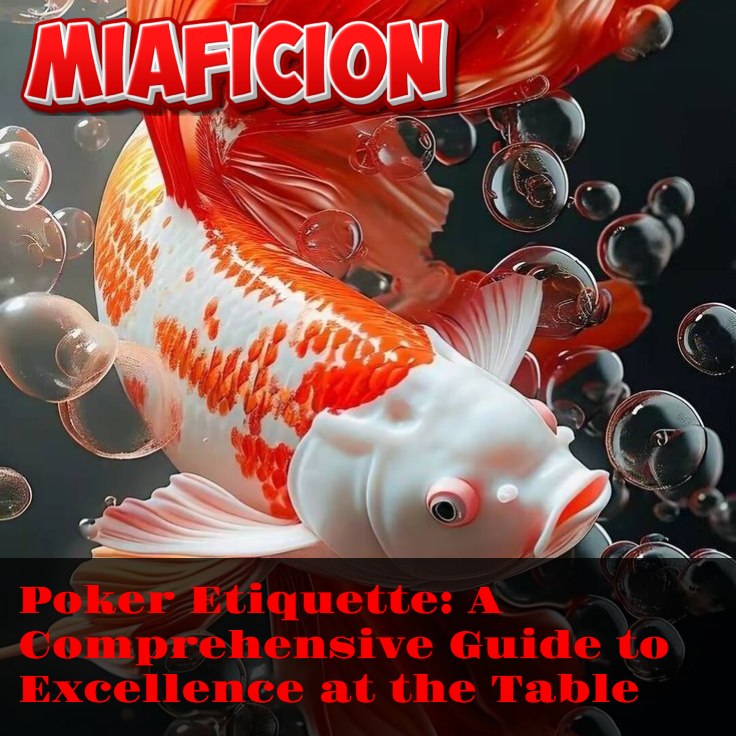Understanding and adhering to proper poker etiquette is an essential skill for any player, whether you are a seasoned professional or a newcomer. Respecting the unwritten rules of the game not only ensures a pleasant experience for everyone but also demonstrates professionalism and sportsmanship. In this article, we will provide an in-depth guide to poker etiquette that will help you shine at any poker table.
What Is Poker Etiquette and Why Does It Matter?
Poker etiquette encompasses a set of unwritten rules and behaviors that promote fair play, respect, and an enjoyable environment for all participants. Unlike formal game rules, these practices are about maintaining harmony at the table and avoiding unnecessary conflicts. Observing good etiquette can even give you a psychological edge, as it conveys composure and respect for the game.
The Basics of Proper Poker Table Behavior
1. Respect the Dealer
The dealer plays a vital role in ensuring the game runs smoothly. Always be polite and courteous to them. Avoid blaming the dealer for bad hands or bad beats—they have no control over the cards dealt. If you have questions or concerns, address them calmly.
2. Pay Attention to the Game
Staying engaged and focused is critical. Refrain from distracting behaviors like using your phone excessively, chatting loudly, or delaying your actions unnecessarily. Being inattentive can slow the game and irritate other players.
3. Act in Turn
Acting out of turn disrupts the flow of the game and gives unfair advantages to some players. Always wait for your turn to make a decision, and be aware of the action happening before it’s your time to play.
Key Poker Etiquette Practices at a Live Table
4. Protect Your Cards
While it is the dealer’s job to manage the game, protecting your cards is your responsibility. Use a card protector or keep your hand on your cards to avoid accidental exposure or mix-ups.
5. Avoid “Slow Rolling”
Slow rolling, or deliberately taking too long to reveal a winning hand, is considered extremely poor etiquette. It’s disrespectful to your opponents and disrupts the rhythm of the game. Reveal your cards promptly when it’s your turn.
6. Keep Your Chips Organized
Organize your chips into easily countable stacks to avoid unnecessary confusion or delays. This not only helps the dealer but also allows your opponents to assess your stack accurately during gameplay.
Online Poker Etiquette: How to Play With Integrity Virtually
With the rise of online poker, etiquette has evolved to fit the digital space. Here are some tips for maintaining professionalism in online games:
- Avoid Excessive Chatting: Spamming the chat box or insulting players is disruptive and frowned upon.
- Play at a Reasonable Speed: Just as in live games, avoid unnecessarily stalling your actions.
- Be Mindful of “Multi-Tabling”: If you are playing multiple games at once, ensure you can manage them without slowing others down.
Common Mistakes to Avoid at the Poker Table
7. Discussing Hands in Progress
Never comment on a hand in progress, even if you’re no longer involved. This can unintentionally provide information to active players and influence the outcome unfairly.
8. Complaining About Losses
Bad beats are part of poker, but incessantly complaining can ruin the atmosphere for everyone. Keep your emotions in check and maintain composure, even when luck isn’t on your side.
9. Angle Shooting
Angle shooting refers to deceptive practices that are technically legal but unethical, such as feigning confusion to gain an advantage. These actions are heavily frowned upon and can damage your reputation as a player.

Poker Etiquette for Tournaments
Tournament play comes with additional etiquette considerations:
- Be on Time: Arriving late disrupts the flow of the tournament and inconveniences other players.
- Respect the Clock: Be mindful of the blind levels and avoid stalling to run out the clock.
- Congratulate the Winner: Whether you win or lose, display good sportsmanship by congratulating the victor.
Final Thoughts: Mastering Poker Etiquette
By following these poker etiquette guidelines, you contribute to a respectful and enjoyable environment for everyone at the table. Professional behavior not only enhances your reputation but also ensures that the game remains fair and fun. Remember, poker is as much about psychology and social dynamics as it is about strategy.

